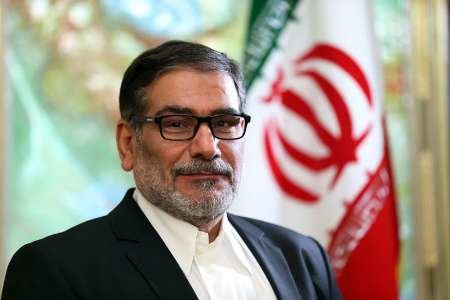ID :
430733
Tue, 01/03/2017 - 12:35
Auther :
Shortlink :
https://oananews.org//node/430733
The shortlink copeid
PMF of strategic capabilities to meet security challenges

TEHRAN, Jan. 03 (MNA) – Leader’s envoy to Supreme National Security Council has hailed Nouri Kamil al-Maliki’s contribution to Iraqi government during his premiership.
Ali Shamkhni received Iraqi former PM and current vice president. Mr. al-Maliki is in Tehran for meetings he believed were seeking to address the post-ISIL Mosul with Iranian officials.
Mr. Shamkhani had reverences to Mr. al-Maliki’s political activism as member of the banned Shia opposition parties during the notorious rule of Saddam Hussein and during post-Saddam times when the US invaded the country but agreed Mr. al-Maliki’s premiership in 2004.
“Public Mobilization Forces, also natively better known as Hashd al-Shabi had been crucial in defeating terrorists; the current situation necessitates that to tackle instability and insecurity, PMF should be relied upon as a platform to channel public capacities to well-organized forms,” he told the meeting. “Shia coordination and constructive workings with other ethnic and religious groups is pivotal to the political process in Iraq, which has contributed to the nascent positive consolidation process.”
Shamkhani reaffirmed Iran’s resolve to support Iraqi government and nation in facing challenges ahead; “sabotage by the US in Mosul liberation operation and to frustrate hopes of the public belies their true intension that they would not want to see crisis subsides in Iraq and in the Middle East at large; ISIL now has been on the verge of destruction and had been pushed to the wall, and the Iraqi Army will ultimately defeat Takfiris to free Mosul, to which PMF had contributed considerably,” Shamkhani added.
Leader’s envoy to SNSC hailed approving to the law in Iraqi Parliament Public Mobilization Force, where all ethnic and tribal groups displayed unprecedented coordination and courage in harnessing tribal rivalries to the good of the nation.
Head of State of the Law Coalition for his part said his Tehran meetings had been successful in setting a new context for bilateral ties with Iran; he also expressed gratitude for Iran’s unwavering support for his country’s struggle against the odds; “for Resistance to be an effective player in countering terrorism and its regional supporters, potential obstacles should be identified and plans should be devised to improve political, defensive, and security capabilities,” he concluded.





